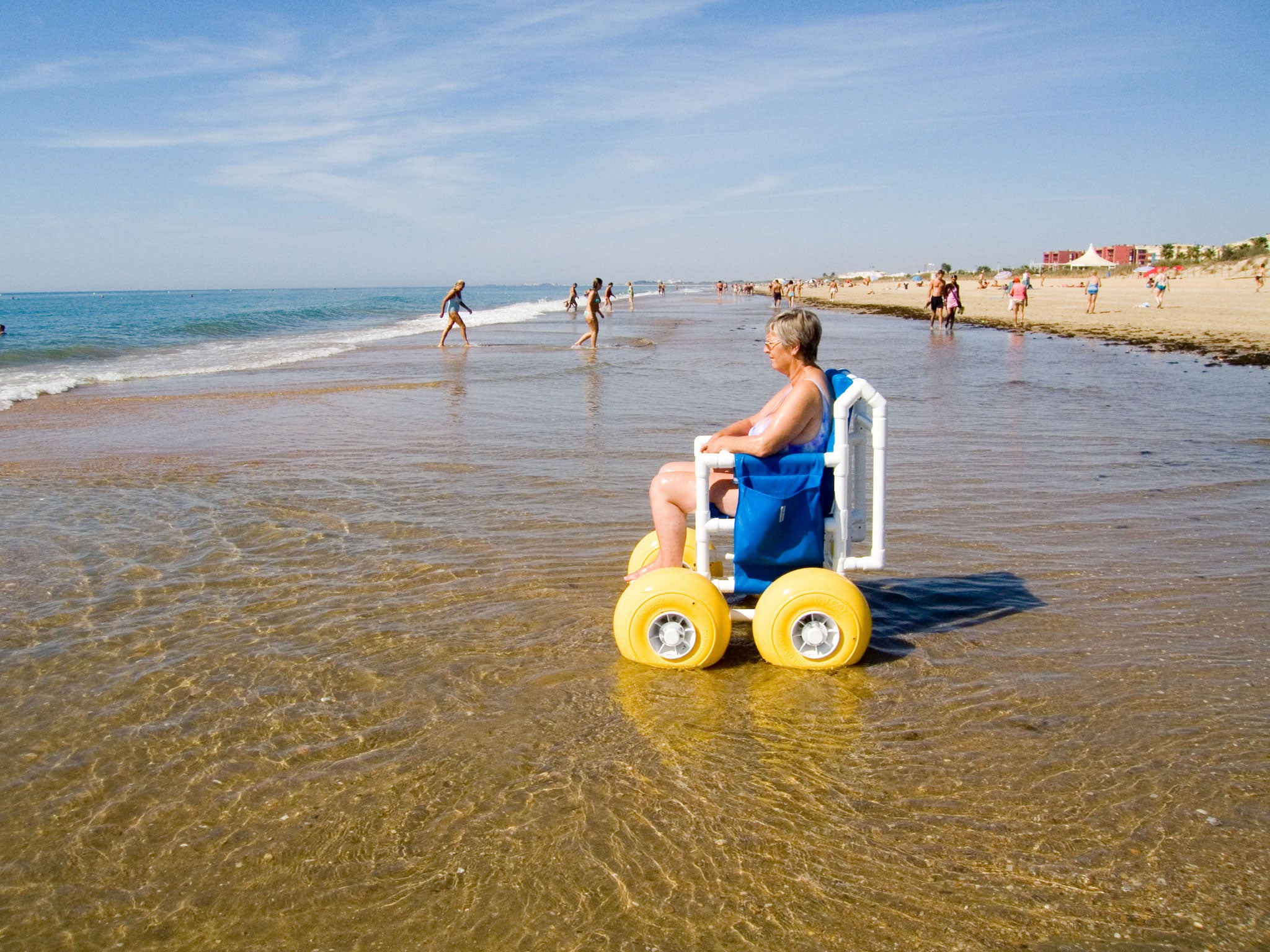Life's a beach – but only if you can get there: Disabled people and their families need easier access to Britain's wide open spaces

The Government is calling for Britain's beaches and tourist destinations to open up to people with disabilities, as official figures show that more than 40 per cent of those with impairments have had a problem in accessing a leisure activity in the past year. Esther McVey, the Minister for Disabled People, has asked local authorities to ensure places such as beaches are accessible to everyone.
Ms McVey said: "As well as the importance of equal access, it makes good business sense to ensure that local areas of beauty and interest can attract as many people as possible. The 'purple pound' [the combined spending power of disabled people in the UK] is worth £80bn a year; councils can benefit... when they consider how to make their local environment more inclusive. A small change can make a big difference to disability access."
For the almost 20 per cent of the working population of the UK who are disabled, peak tourist times, such as the bank holiday weekend, can be a reminder of how many places are inaccessible to them.
Many of Britain's beaches are out of bounds to wheelchair users. A few resorts, such as Polzeath in Cornwall and Barry Island in South Wales, have pioneered schemes that include ramps on to the sand and free use of special beach wheelchairs.
Ms McVey is encouraging councils to work with the Disability Action Alliance, a Government-established group of more than 180 organisations from the public, private and charitable sector, which wants to improve access for disabled people. Initiatives have included the Countryside Mobility scheme in the South-west. It provides all-terrain mobility scooters and wheelchair-accessible "wheelyboats" across more than 30 locations in Cornwall, Devon, Dorset, Gloucestershire and Somerset.
Richard Hawkes, chief executive of the disability charity Scope, said: "One year on from the Paralympics, disabled people continue to be sidelined.... Improving physical access is a must, but attitudes also need to change. Too often the barrier isn't a ramp or lift, it's someone not willing to do things a little differently.
"Disabled people and their families represent 20 million potential customers. Both local businesses and big brands could be doing so much more to tap into this potentially lucrative market."
Merely reaching a tourist attraction can pose problems. More than half of those questioned in a recent Office for National Statistics survey experienced difficulties getting on to a bus or a train. The same poll found that 41 per cent had difficulty accessing some kind of leisure activity in the last year.
Even everyday activities, such as going to the cinema or shopping, can be out of reach. Tanvi Vyas, project manager of the Muscular Dystrophy Campaign's youth scheme Trailblazers said: "It is truly disheartening. Simple adjustments such as ramps and accessibility maps can make a vast difference."
Subscribe to Independent Premium to bookmark this article
Want to bookmark your favourite articles and stories to read or reference later? Start your Independent Premium subscription today.

Join our commenting forum
Join thought-provoking conversations, follow other Independent readers and see their replies